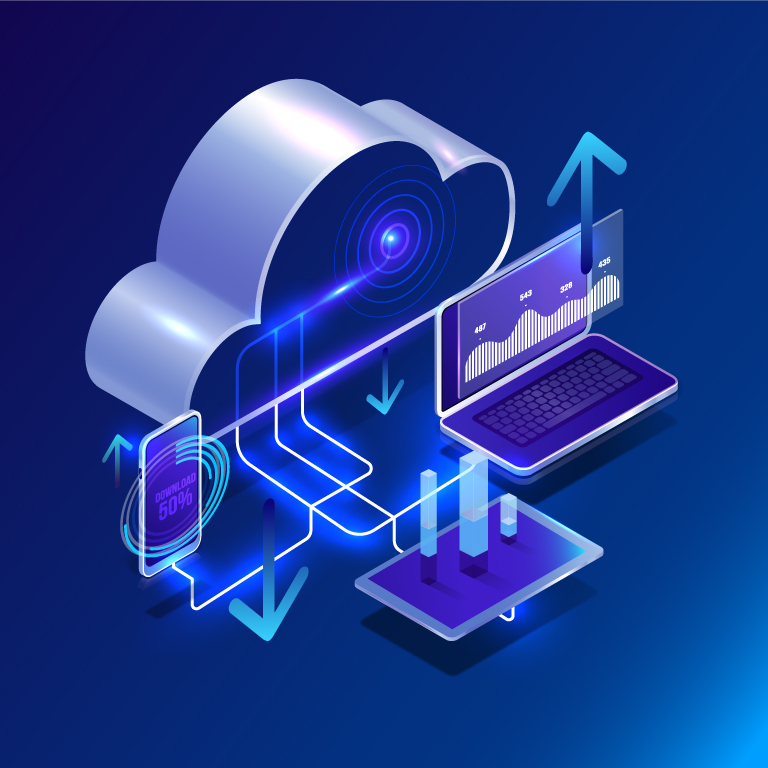Cloud Saas
A set of ICT services, on-demand and self-service accessible, through Internet technology.Software-as-a-Service
According to studies, surveys and analysis carried out in the most different business areas, more and more companies have chosen to rely on the well-known “cloud”, benefitting from an ecosystem rich of tools which can be interconnected in countless settings, with the only goal to create value for the company which chooses to adopt these settings and infrastructure.
We can thus state that Cloud Computing is today a necessary technology for the society development, made of continuous data exchange in real time as well as human and working relationships. From the Covid period on, all these elements have been transferred to the remote working which, thanks to non-stop service and resources flexibility, have paved the way to work collaborations, inconceivable before then.
Cloud computing leverages the internet connection to offer the user or the customer, processing services, data transmission and storage. A supplier, provided with server infrastructure in a single or more datacenters, makes available these services on-demand, minimizing maintenance costs and infrastructure management. In short, cloud technology allows to save data and have them at your disposal anytime, anyplace. In all likelihood you are already using a consistent range of cloud services without even realizing it, such as instant messaging services, internet of things, apps on your smartphone, e-mail box, and so on.
If a technology like this one has a tremendous impact on your lives, think about what length it could have in corporate and operative structures.

CLOUD COMPUTING’s seven upsides
Cloud technology stands for the best option ever as far as the performance is concerned. This involves on demand services able to leverage on big quantities of compute resource in few minutes, providing such power and speed to facilitate the job. The chance not to take up space on personal or company’s devices, significantly impacts on the same devices’ performance.
Cloud services provide redundant storage, allowing you to automatically save the same data simultaneously on two or more different servers. With the real time data duplication, you won’t have to concern about having an offline website in case the main server is malfunctioning: you’ll always have an active server to rely on.
Among the main upsides of the cloud computing is the scalability of available resources. With a Cloud solution, you’ll be able to quickly add or subtract resources according to your needs. Your website will easily manage the seasonal traffic peaks without compromising the user experience.
